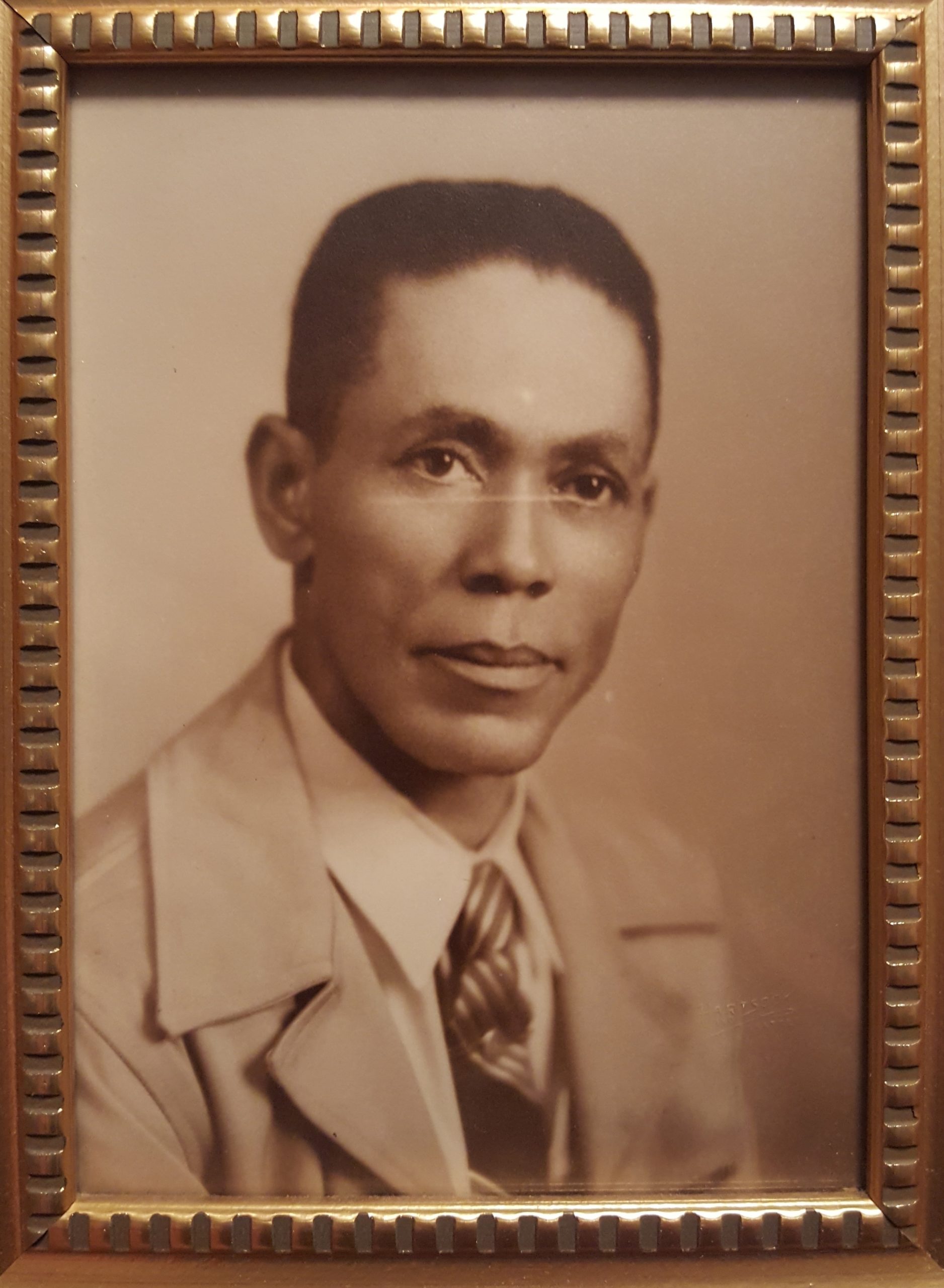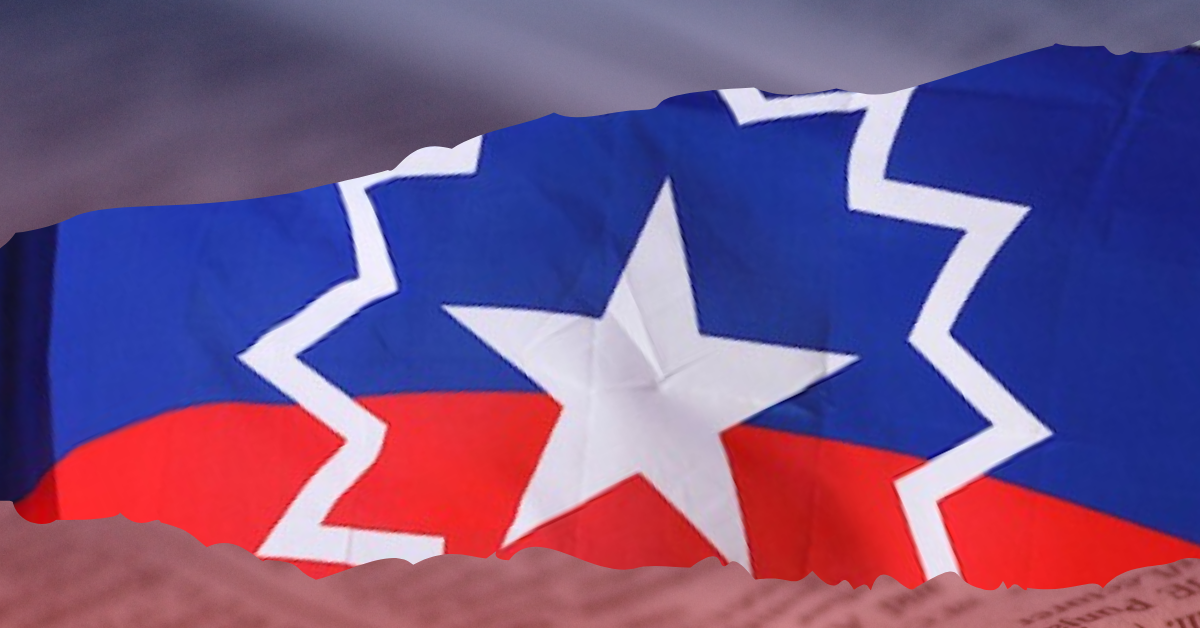OPINION
Celebrating progress, fighting for justice
In my family’s history, in the history of Black Americans, I hear the echoes of fights for justice we grapple with today as we celebrate Juneteenth
by APRIL SIMS
(June 19, 2025) – For my grandfather, democracy was a celebration and Election Day was an occasion. Many of us think of voting as a duty, maybe even a chore to check off our to-do list, but for my grandfather it was a joyous honor. My aunt tells the stories of the family getting dressed in their Sunday best, and my grandfather recruiting neighbors to go to the polls before coming back to the neighborhood for a community potluck. He instilled this love of democracy in his children; at 86, my aunt still volunteers for GOTV phone banks.
And it was an honor he had to fight for. As a sharecropper picking cotton in Louisiana under Jim Crow, it was a right he was denied, just as he was denied the economic justice and basic dignity he was entitled to.

Sims’ grandfather, Theodore (Teddy) Turner.
Every year, Juneteenth celebrations mark the day in 1865 when General Order No. 3 was read out in Galveston, Texas, declaring, “an absolute equality of personal rights and rights of property, between former masters and slaves, and the connection heretofore existing between them, become that between employer and hired labor.”
An absolute equality of rights was his in name. Yet still, more than 70 years after the Galveston Proclamation was read out, marking the official end of slavery and a declaration of economic equality in principle, my granddad and his fellow Black Americans faced race-based discrimination in employment, suffrage, living standards, and more.
The promise of freedom and equality that is celebrated on Juneteenth was still denied to him.
After facing threats to his life for standing up for himself and other sharecroppers, my grandfather came to Washington state in 1943, where he was able to vote for the first time. He got a job working at Hanford, securing a guaranteed wage. For him, economic justice and democracy were found in tandem here in our state.
In my grandfather’s story, I see progress. In his pursuit of equality, I see the fights for justice won by millions of people, steadfast in their determination and perseverance. I see the joy found when dignity is recognized and rights are respected. I see our democracy as something worth celebrating.
In his story I also recognize fights for justice we are still deep within today. The democracy my grandfather cherished — the democracy that so many Black people, for so many centuries, have fought to perfect — is not secure. It’s true that the men who wrote our constitution did not include Black people as full members of this cherished democracy. Nor did their view of democracy and its participants include the right to vote for women of any race. But generations of principled struggle have molded our constitution and our laws into more just documents – leaders like Sojourner Truth, Fannie Lou Hamer, Ida B. Wells, and Ella Josephine Baker fought to make it so.
In my family’s history, in the history of Black Americans, I hear the echoes of fights for justice we grapple with today as we celebrate Juneteenth.

What it took for my grandfather to achieve the American dream is a familiar story. My granddad needed a good job to support his family; that’s what brought him to Hanford. But Kennewick was a sundown town, and my grandfather didn’t want his family moving from Louisiana where they faced discrimination and hostility, to a new town where they’d likewise be unwelcome. So the family stayed in Seattle, while my grandfather worked over 200 miles away. To provide for his family, he had to be apart from them.
This separation – forced by economic necessity, by discriminatory practices – is a throughline working people in this country have faced for generations, and continue to face today. These sacrifices are the stories of migration that make up the fabric of so many lives here in the United States. So many people make long, difficult journeys to secure economic justice and freedom.
For most of us, there is nothing we wouldn’t do to protect the people we love. We’d move 3000 miles, to an often cold and rainy state. We’d cross borders, travel by foot for weeks, risk the elements, violence, even death in the hope that we’d find safety for our family.
As we celebrate Juneteenth this year, I think of the families still making these hard choices today. I think of my immigrant siblings, caught in an unfair system that so often exploits their labor while withholding safety and equality, a system that relies on immigrants’ labor while maintaining so many barriers to full participation in our democracy. Like my grandfather, so many immigrant workers caught in this trap work everyday in the fields putting food on our tables.
Like my grandfather, they are entitled to all their labor creates, including the American dream of justice, opportunity, and prosperity.
In celebrating Juneteenth, we hold two ideas in tandem; the joy of celebrating progress, and the urgent need to continue fighting for justice until we all are free.
April Sims is the President of the Washington State Labor Council, AFL-CIO. 





